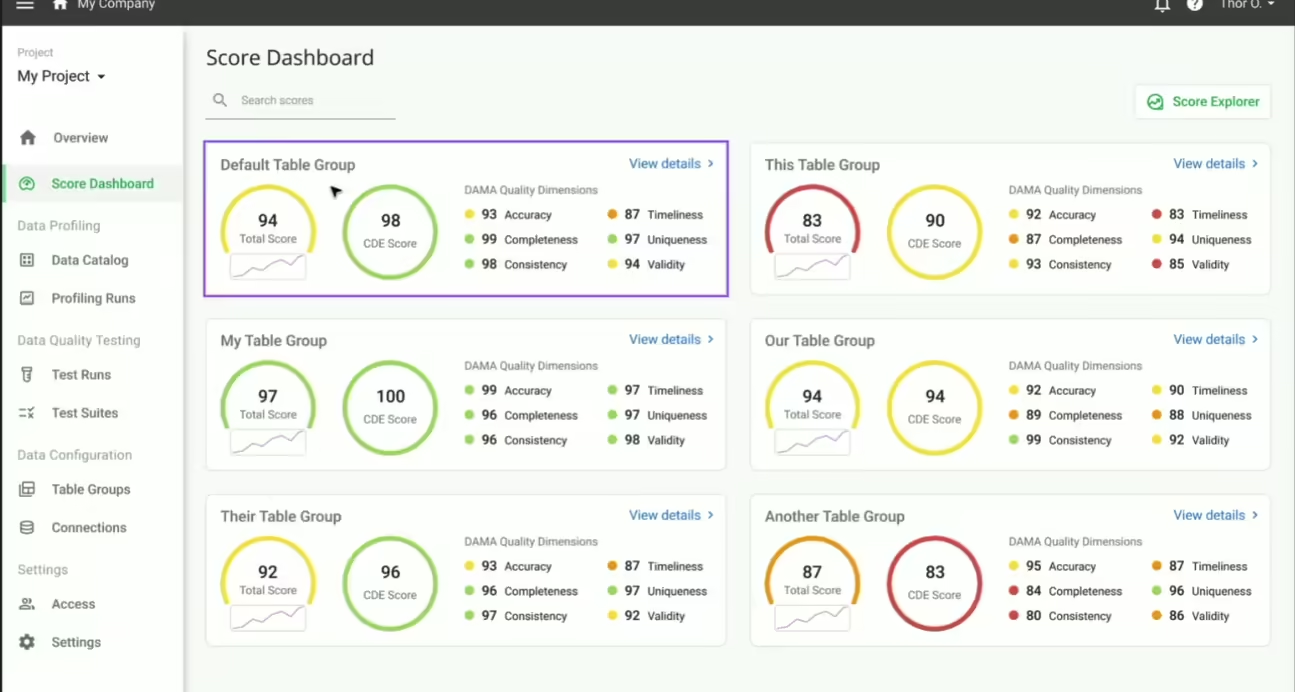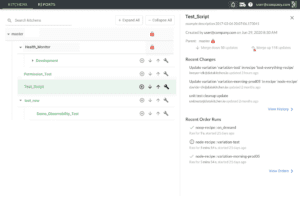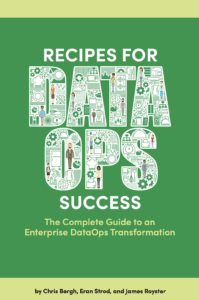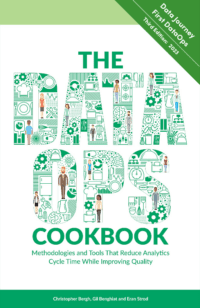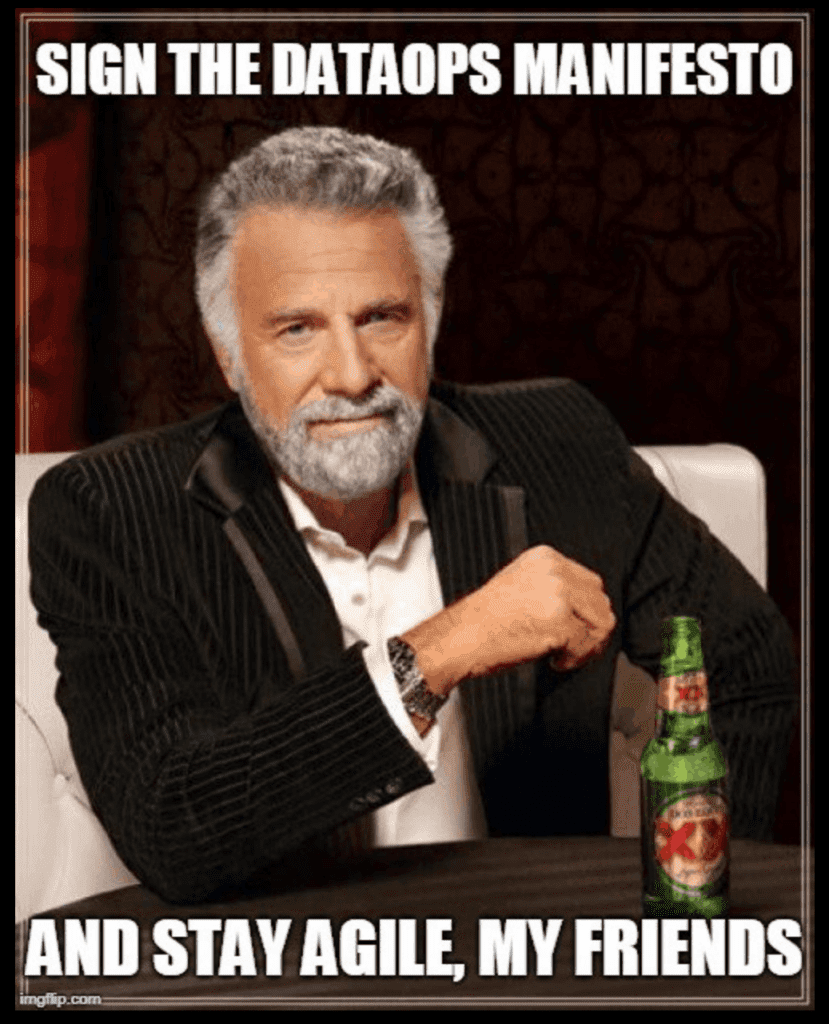Recipes for DataOps Success
The Complete Guide to an Enterprise DataOps Transformation
See how data teams are using DataOps to transform their organizations for business agility. This book answers questions such as how do you build support for DataOps? What is the best first project? How can you transfer DataOps from a single team to the greater enterprise? And much much more!

Read It Now
Recipes for DataOps Success answers the all-important question: how do we get started with DataOps? Concise and well-written, this book is a wonderful primer for any data & analytics professional or business owner who finally wants to get real value from their data assets.
Chris Bergh, Eran Strod, and James Royster have written a unique book that is the go-to guide for DataOps transformation. It covers an impressive breadth and scope of topics and explains them in a highly accessible way. If your organization is in any way struggling to deliver high-quality data analytics at speed you owe it to yourself to read this book, there is something to learn for everyone.
DataOps is one of the most important innovations in the data industry in the last decade. It will transform how your organization delivers analytic capabilities, drives value, and shifts to data-supported decisions. The latest book from DataKitchen is the “how-to” manual that you need to start your DataOps transformation.
Takes the path to success with DataOps to a whole new level of understanding. There are so many actionable insights in the book.
The authors of “Recipes for DataOps” have understood what most of the industry has yet to learn – the key to data success lies not in having large data science teams or the latest machinery, components, and tools, but in establishing efficient, value-driven work processes. This book is a great step-by-step guide to unlocking that capability and achieving a DataOps culture – the data- and AI equivalent of Lean manufacturing. It is a long journey, but rewarding from the start. This book is one of the few good DataOps guides available, and I recommend it to everyone that is working with data on a daily basis – data engineers, analysts, data scientists, product owners, and data team managers. Moreover, that Maori slow-cooked pork seems delicious.
This book is a great read and really important for any organization that wants to transform with DataOps rather than tinker around the edges. The book covers important concepts critical to the success of DataOps such as the Theory of Constraints, Process Measurement, and DataGovOps. It clarifies the full approach – business requirements first, tools second – so you are not creating more constraints before you have even started. This is a must-read for anyone open to finding better ways of working through DataOps.
